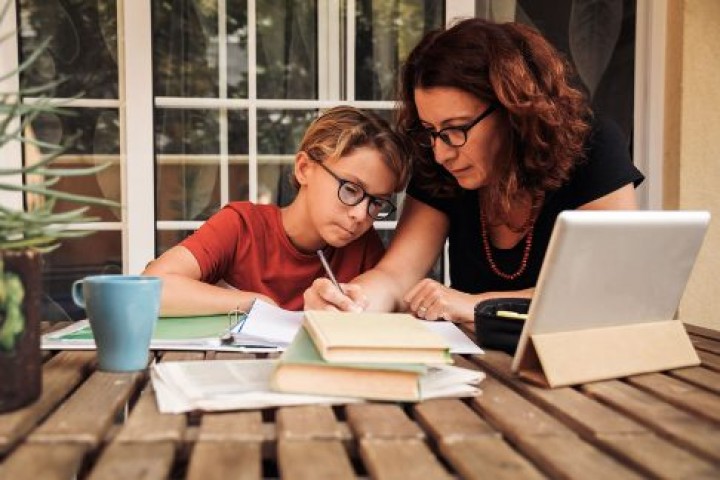5 Ways to Help Your Children Study at Home

The coronavirus epidemic is worldwide. Maintaining social distance is essential to survive this epidemic. So the government has announced a lockdown and all schools and colleges have been closed. Today I will talk about how to take care of the children's education at home.
1. Plan a routine together
Try to establish a routine that factors in age-appropriate education programs that can be followed online, on the television, or through the radio. Also, factor in playtime and time for reading. Use everyday activities as learning opportunities for your children. And don’t forget to come up with these plans together where possible.
Although establishing a routine and structure is critically important for children and young people, in these times you may notice your children need some level of flexibility. Switch up your activities. If your child is seeming restless and agitated when you’re trying to follow an online learning program with them, flip to a more active option. Do not forget that planning and doing house chores together safely is great for the development of fine and gross motor functions. Try and stay as attuned to their needs as possible.
2. Have open conversations
Encourage your children to ask questions and express their feelings with you. Remember that your child may have different reactions to stress, so be patient and understanding. Start by inviting your child to talk about the issue. Find out how much they already know and follow their lead. Discuss good hygiene practices. You can use everyday moments to reinforce the importance of things like regular and thorough handwashing. Make sure you are in a safe environment and allow your child to talk freely. Drawing, stories, and other activities may help to open a discussion.
Try not to minimize or avoid their concerns. Be sure to acknowledge their feelings and assure them that it’s natural to feel scared about these things. Demonstrate that you’re listening by giving them your full attention, and make sure they understand that they can talk to you and their teachers whenever they like. Warn them about fake news and encourage them – and remind yourselves – to use trusted sources of information such as UNICEF guidance.
3. Take your time
Start with shorter learning sessions and make them progressively longer. If the goal is to have a 30- or 45-minute session, start with 10 minutes and build up from there. Within a session, combine online or screen time with offline activities or exercises.
4. Protect children online
Digital platforms provide an opportunity for children to keep learning, take part in the play, and keep in touch with their friends. But increased access online brings heightened risks for children’s safety, protection, and privacy. Discuss the internet with your children so that they know how it works, what they need to be aware of, and what appropriate behavior looks like on the platforms they use, such as video calls.
Establish rules together about how, when, and where the internet can be used. Set up parental controls on their devices to mitigate online risks, particularly for younger children. Identify appropriate online tools for recreation together - organizations like Common Sense Media offer advice for age-appropriate apps, games and other online entertainment. In the case of cyberbullying or an incident of inappropriate content online, be familiar with the school and other local reporting mechanisms, keeping numbers of support helplines and hotlines handy.
Don’t forget that there’s no need for children or young people to share pictures of themselves or other personal information to access digital learning.
5. Stay in touch with your children’s education facility
Find out how to stay in touch with your children’s teacher or school to stay informed, ask questions, and get more guidance. Parent groups or community groups can also be a good way to support each other with your homeschooling.